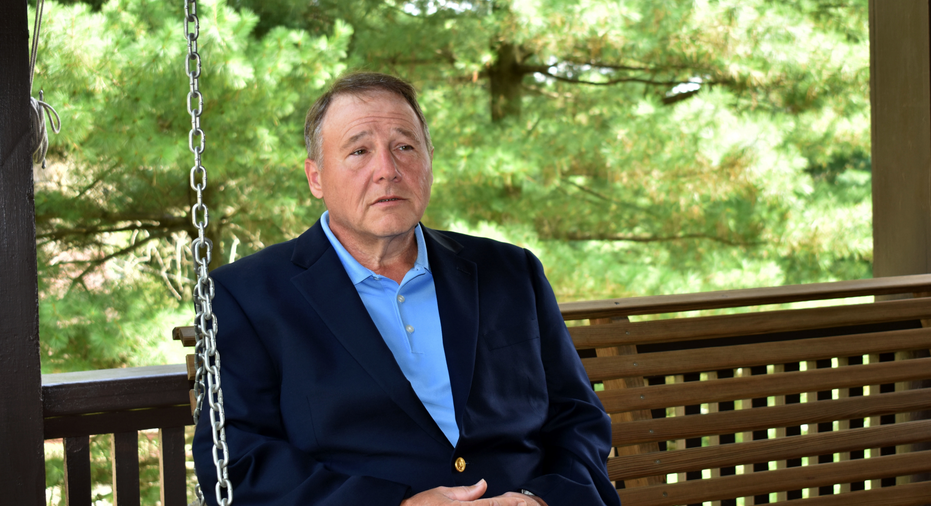Mine safety nomination follows history as coal executive

MORGANTOWN, W.Va. – The retired coal company executive from West Virginia chosen by Republican President Trump to oversee U.S. mining safety says his first priority is preventing people from getting hurt and that he replaced the managers of a mine plagued by safety violations in 2010 and 2011 where a miner died.
David Zatezalo of Wheeling, who retired in 2014 as chairman of Rhino Resources, still faces opposition from his home state's Democratic U.S. Sen. Joe Manchin, who says he's unconvinced the 62-year-old is suited to the job based on his industry safety record, especially as mining deaths have already increased this year with 13 deaths.
Zatezalo had told the Senate committee that advanced his nomination this week, on a 12-11 party-line vote, that the U.S. industry is safer than ever, technology can further improve it and the required four annual mine inspections shouldn't be reduced.
"Our first priority is preventing people from getting hurt and improving the compliance regime across the board," he said at his confirmation hearing. His nomination goes next to a floor vote, which hasn't been scheduled yet. A similar partisan split would confirm him.
Zatezalo told the senators he wouldn't reopen the investigation sought by ex-Massey Energy CEO Don Blankenship in the 2010 West Virginia mine explosion that killed 29 miners unless there is new evidence. Blankenship spent a year in federal prison for misdemeanor conspiracy to violate federal safety standards at the mine.
Questioned about the repeated safety violations cited by MSHA and the 2011 death at one of Rhino's West Virginia mines, Zatezalo said the management of that site wasn't doing what it should have. "I felt you know if you haven't done your job we should be big kids and deal with it as such. Incidentally I replaced that management because I wasn't too happy with their performance and I hadn't been for some time," he said.
At 6,000-pound (2,700-kilogram) piece of an underground rib pillar fell on 33-year-old crew chief Joseph Cassell, crushing him at the Rhino's Eagle #1 Mine in Raleigh County, MSHA investigators reported. They concluded the pillar was inadequately bolted.
"The operator's attempts to support the ribs with timbers and/or 42-inch conventional bolts were inadequate, as evidenced by loose, broken and hanging ribs, and broken supports at numerous locations," the investigators wrote.
Sen. Lamar Alexander, chairman of the Senate Committee on Health, Education, Labor, and Pensions, said Zatezalo was "uniquely qualified" for the safety job. The Tennessee Republican noted that the engineer and businessman's 41-year mining career began as a laborer.
But before the committee vote, ranking Democratic Sen. Patty Murray said Zatezalo had failed to commit to stand up for workers against the pro-business Trump administration that has rolled back various worker protections.
At the confirmation hearing, she cited his company's safety violations and noted that he had been sued for allowing "unchecked" workplace discrimination and then punishing the employee who was the target. "That's really troubling to me and I fear another example of a fox to guard the hen house," she said.
Even before that, Manchin said West Virginians are "painfully familiar" with the human toll from mine accidents. He said Zatezalo wouldn't provide the strong leadership needed at MSHA.
Celeste Monforton, a former MSHA official who watched the hearing, said Zatezalo's answers were measured. She said she was taking a wait-and-see approach to the selection, adding she was glad Trump hadn't chosen a lobbyist.
"It ultimately comes down to if he is confirmed, how we see his behavior and his attitude after he's confirmed there at the agency," she said.
In his testimony, Zatezalo said he would support Trump's agenda for the health and safety of American miners. In his career, he said he managed and operated 39 different mines. The U.S. industry, he said, is safer and healthier than ever before, but progress is needed, including technology for real-time monitoring of silica dust blamed for a virulent variation of the black lung disease that has afflicted even some younger coal miners.
Zatezalo said the number of federal inspectors is "pretty good today," and that the data show them making the four annual mine inspections required by law.
"We certainly don't want to let that fall down, just as I wouldn't want to drive on the highways without police ... to take control of speeders and drunk drivers. Inspections in mines in the United States are a necessity, and they have to continue," he said.



















